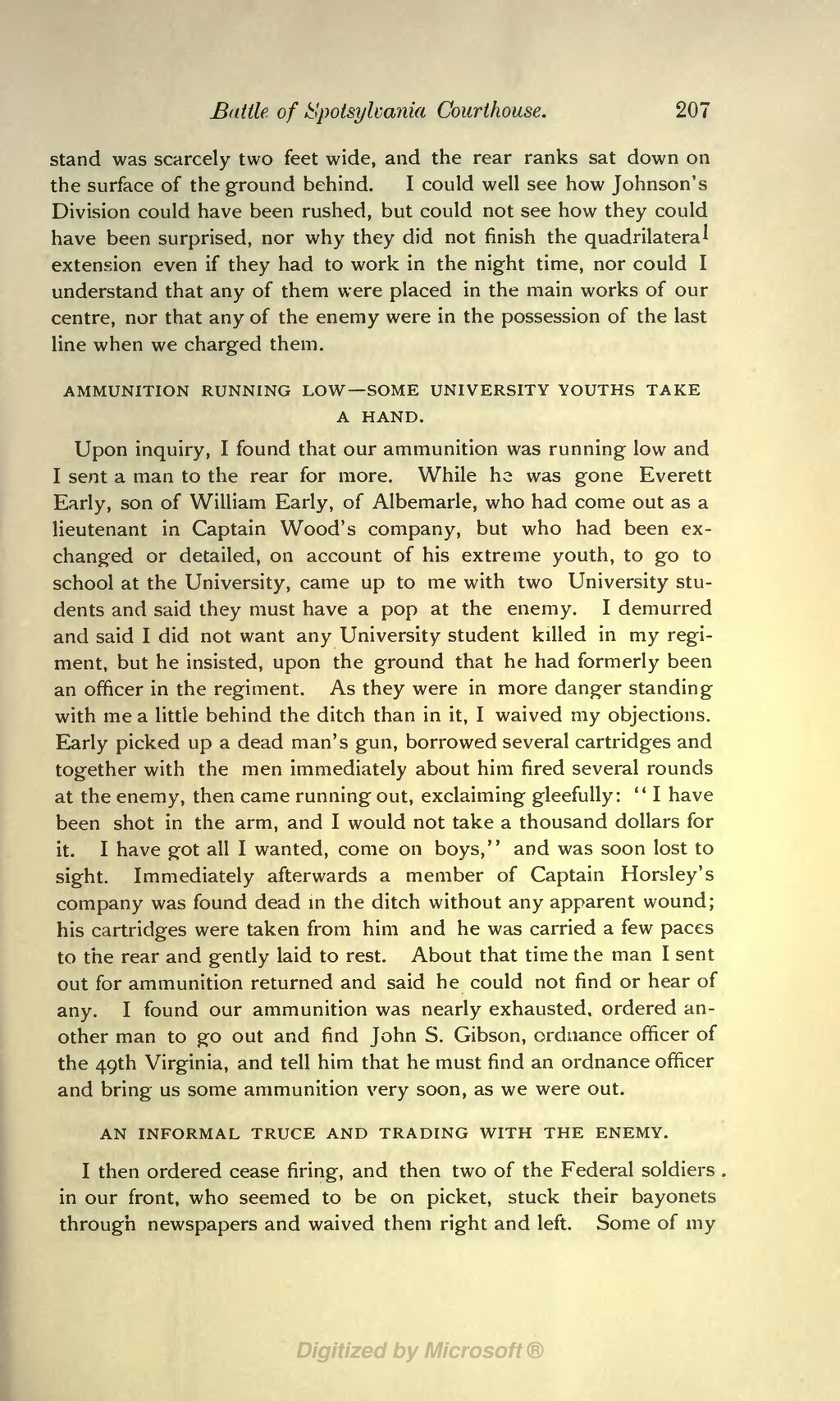Battle of Spotsylvanfa Courthouse. 207
stand was scarcely two feet wide, and the rear ranks sat down on the surface of the ground behind. I could well see how Johnson's Division could have been rushed, but could not see how they could have been surprised, nor why they did not finish the quadrilateral extension even if they had to work in the night time, nor could I understand that any of them were placed in the main works of our centre, nor that any of the enemy were in the possession of the last line when we charged them.
AMMUNITION RUNNING LOW SOME UNIVERSITY YOUTHS TAKE
A HAND.
Upon inquiry, I found that our ammunition was running low and I sent a man to the rear for more. While he was gone Everett Early, son of William Early, of Albemarle, who had come out as a lieutenant in Captain Wood's company, but who had been ex- changed or detailed, on account of his extreme youth, to go to school at the University, came up to me with two University stu- dents and said they must have a pop at the enemy. I demurred and said I did not want any University student killed in my regi- ment, but he insisted, upon the ground that he had formerly been an officer in the regiment. As they were in more danger standing with me a little behind the ditch than in it, I waived my objections. Early picked up a dead man's gun, borrowed several cartridges and together with the men immediately about him fired several rounds at the enemy, then came running out, exclaiming gleefully: " I have been shot in the arm, and I would not take a thousand dollars for it. I have got all I wanted, come on boys," and was soon lost to sight. Immediately afterwards a member of Captain Horsley's company was found dead in the ditch without any apparent wound; his cartridges were taken from him and he was carried a few paces to the rear and gently laid to rest. About that time the man I sent out for ammunition returned and said he could not find or hear of any. I found our ammunition was nearly exhausted, ordered an- other man to go out and find John S. Gibson, ordnance officer of the 49th Virginia, and tell him that he must find an ordnance officer and bring us some ammunition very soon, as we were out.
AN INFORMAL TRUCE AND TRADING WITH THE ENEMY.
I then ordered cease firing, and then two of the Federal soldiers in our front, who seemed to be on picket, stuck their bayonets through newspapers and waived them right and left. Some of my
